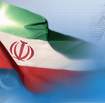Iran’s Alleged Nuclear Weapons Program: Are More Economic Sanctions in the Works?
Nuclear Talks Fail in Kazakhstan

Nuclear talks between Iran’s negotiating team led by Supreme National Security Council secretary, Saeed Jalili and diplomats from the United States, France, Germany, China, Russia and Britain in the Kazakh city of Almaty has reportedly failed.
A senior U.S. administration official earlier this week told CNN “As long as Iran does not take concrete steps to address the concerns of the international community about its nuclear program, the dual-track process continues. And that pressure only will increase if Iran does not begin to take concrete steps and concrete actions.” It means that Iran will have more sanctions imposed by the West if negotiations fail, which they did.
There is still a chance for more talks on Saturday if both sides agree to meet again. The Guardian reported that ‘Iran nuclear talks in Kazakhstan stumble’ it stated that “A day of talks over the future of Iran’s nuclear program has run into trouble, with diplomatic sources speaking of a “gulf” between the Islamic republic and the world’s six major powers.” Iran remains committed to its right to uranium enrichment and wants the West to lift its sanctions that has caused severe damage to its economy affecting millions of Iranians. The West wants Iran to close all of its enrichment facilities and stop uranium enrichment altogether. Expect the negotiations to fail by this weekend. This comes at a time when US Secretary of Defense John Kerry visits the Middle East on April 8th and 9th to talk to Israeli Prime Minister Benjamin Netanyahu. He will also visit the Palestinian territories and Turkey, but the main focus will be Iran’s nuclear program. According to The Guardian’s report:
Iran’s response to the offer from the group fell short of what the six wanted and instead amounted to a reworking of proposals it made last year at negotiations that ended in stalemate, according to a source privy to the talks. He said the two sides remained a “long way apart on substance.
Tensions will increase with the US, Israel and Iran as negotiations yield no progress between both sides. The US and Israel are intent on preventing an Iranian Nuclear program, although it is for peaceful purposes. The BBC reported that “Saeed Jalili told an audience at Almaty university on Thursday: “We think our talks… can go forward with one word. That is the acceptance of the rights of Iran, particularly the right to enrichment.” Iran would not give up their right on principal since they signed the Nuclear Non-Proliferation Treaty allowing them to enrich uranium as other members who signed the NPT. “We are talking about peaceful nuclear energy,” he stressed, accusing “a handful of countries” of trying “to deny this right to others,” according to BBC.
With the Korean Nuclear crises, would Israel strike Iran’s nuclear facilities in order to prevent a Middle East crisis? Not anytime soon since the US is involved in numerous military adventures. The Israeli media is sure trying to take advantage of the situation. The Israeli newspaper Haaretz published an article on April 4th, 2013, a day before the nuclear talks in Kazakhstan called “What Iran has learned from the Korean crisis” by Anshel Pfeffer who writes in a section called The Axis as in the “Axis of Evil” a term used by former US President George W. Bush. Pfeffer wrote:
The two nations indeed have a lot in common, aside from their deep hostility toward the U.S. Both hold rigid ideologies that grow stronger against the international sanctions and isolation (consider Juche, the Korean national belief in self-reliance and the Iranian radical interpretation of Shia Islam). Both have succeeded for years in maneuvering between the superpowers, taking advantage of Russian and China’s hostility to American hegemony. Both maintain a balance of terror with their U.S.-backed neighbors – South Korea and Japan, Saudi Arabia and Israel.
Tensions will increase between Iran and the West including Israel in the coming months ahead. Expect more sanctions and more Israeli hostility towards Iran. Is there war on the horizon? Not anytime soon. Syria is the primary target for Western intervention which is another reason the Secretary of Defense John Kerry is visiting the Middle East next week.

